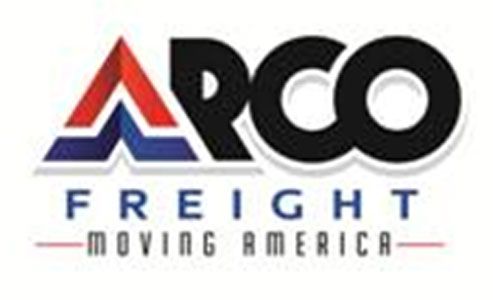Unlocking Timelines: How Long Does Freight Shipping Take?
When considering the logistics of moving goods from one place to another, a common question arises: "How long does freight shipping take?" Understanding the timelines involved in freight shipping is crucial for businesses and individuals alike. Whether you're sending products across the country or across the globe, having a clear grasp of shipping durations can streamline operations and prevent unexpected delays. In this comprehensive guide, we'll delve into the intricacies of freight shipping timelines, explore the factors that influence delivery times, and provide practical tips for optimizing your shipping processes.
Understanding Freight Shipping Timelines:
Freight shipping timelines are essential to grasp for anyone involved in logistics operations. Whether you're a business owner coordinating shipments of goods or an individual awaiting a package, understanding the nuances of shipping timelines can help you manage expectations and plan effectively.
Freight shipping encompasses a variety of modes, each with its own unique characteristics and transit times. The primary modes of freight transportation include air, sea, road, and rail.
Air freight is renowned for its speed and efficiency, making it a preferred choice for time-sensitive shipments. With the ability to cover vast distances in relatively short periods, air freight is well-suited for urgent deliveries and perishable goods. However, the convenience of air transport often comes with a higher price tag compared to other modes of shipping.
Sea freight, on the other hand, offers a cost-effective solution for shipping large volumes of goods over long distances. While ocean vessels may not be as swift as airplanes, they provide ample space for bulky or heavy cargo and offer competitive rates for international shipments. Sea freight transit times vary depending on factors such as the distance between ports, weather conditions, and potential delays at customs checkpoints.
Road freight is a staple of domestic shipping operations, offering flexibility and accessibility for businesses across various industries. Trucks and trailers transport goods over highways and road networks, providing door-to-door delivery
services for shipments of all sizes. Road freight transit times are influenced by factors such as traffic congestion, road conditions, and the distance between pickup and delivery points.
Rail freight serves as an economical and eco-friendly mode of transportation for long-distance shipments. Trains haul freight across vast expanses of land, connecting major cities and industrial hubs with efficiency and reliability. Rail freight transit times are generally longer than those of air or road transport but offer cost savings and environmental benefits for businesses seeking sustainable shipping solutions.
In addition to transportation modes, several factors influence freight shipping timelines:
- Distance and Destination: The distance between the point of origin and the final destination plays a significant role in determining shipping timelines. Longer distances typically result in extended transit times, especially for sea and rail freight shipments.
- Freight Type and Size: The type and size of the cargo being shipped can impact transit times and transportation requirements. Oversized or irregularly shaped items may require specialized handling and transportation arrangements, potentially leading to longer shipping timelines.
- Customs Clearance Processes: For international shipments, customs clearance procedures can introduce additional delays into the shipping timeline. Customs inspections, documentation requirements, and import/export regulations must be adhered to, contributing to the overall transit time of the shipment.
- Carrier Schedules and Capacity: The availability of carriers and transportation capacity can influence shipping timelines, particularly during peak seasons or periods of high demand. Businesses may need to consider factors such as carrier schedules, transit times, and service levels when planning their shipping operations.
By understanding these factors and selecting the appropriate transportation mode and logistics partners, businesses can optimize their
freight shipping timelines and ensure timely delivery of goods to customers and partners alike.
Breaking Down the Timeframes:
To gain a comprehensive understanding of freight shipping timelines, it's crucial to break down the timeframes associated with each mode of transportation. Let's delve deeper into the transit times and considerations for air, sea, road, and rail freight.
Air Freight
Air freight is renowned for its speed and efficiency, making it an attractive option for time-sensitive shipments. The transit times for air freight can vary significantly depending on factors such as the distance between airports, flight schedules, and customs clearance procedures. Generally, air freight shipments can reach their destinations within hours to a few days, making it ideal for perishable goods, high-value items, and urgent deliveries. However, the cost of air freight is typically higher compared to other modes of transportation, reflecting the premium placed on speed and reliability.
Sea Freight
Sea freight offers a cost-effective solution for shipping large volumes of goods over long distances. Ocean vessels transport cargo across vast bodies of water, connecting continents and facilitating global trade. The transit times for sea freight shipments vary depending on factors such as the distance between ports, weather conditions, and the type of vessel used. While sea freight transit times are generally longer compared to air freight, they provide an economical option for businesses shipping non-urgent or bulky items. Depending on the route and distance, sea freight shipments can take anywhere from several days to several weeks to reach their destinations.
Road Freight
Road freight is a common mode of transportation for domestic shipments, offering flexibility and accessibility for businesses across various industries. Trucks and trailers transport goods over highways and road networks, providing door-to-door delivery services for shipments of all sizes. The transit times for road freight shipments are influenced by factors such as traffic congestion, road conditions, and the distance between pickup and delivery points. While road freight offers faster transit times compared to sea freight for domestic shipments, it may not be as expedient as air freight for long-distance or time-sensitive deliveries.
Rail Freight
Rail freight serves as an economical and eco-friendly mode of transportation for long-distance shipments. Trains haul freight across vast expanses of land, connecting major cities and industrial hubs with efficiency and reliability. The transit times for rail freight shipments vary depending on factors such as the distance between rail terminals, train schedules, and the type of freight being transported. While rail freight transit times may be longer compared to air or road transport, they offer cost savings and environmental benefits for businesses seeking sustainable shipping solutions.
Understanding the timeframes associated with each mode of transportation is essential for effective logistics planning and decision-making. By evaluating factors such as speed, cost, and reliability, businesses can select the most suitable shipping option for their specific needs and requirements. Whether it's air, sea, road, or rail freight, each mode offers unique advantages and considerations that contribute to the overall efficiency and success of the supply chain.
Real-World Examples and Case Studies:
Examining real-world examples and case studies can offer valuable insights into freight shipping timelines. For instance, a cross-country freight shipping analysis may reveal the differences in transit times between various transportation modes. Similarly, an international freight shipping case study can shed light on the complexities involved in navigating customs procedures and regulatory requirements. By studying these examples, businesses can gain a deeper understanding of shipping timelines and tailor their logistics strategies accordingly
.
Strategies for Managing Shipping Timelines:
Managing shipping timelines effectively requires careful planning and execution. One strategy involves forecasting demand and planning shipments accordingly to avoid last-minute rushes and delays. Leveraging technology such as tracking and monitoring tools enables businesses to keep tabs on their shipments in real-time, allowing for proactive intervention in case of any issues. Building strong relationships with carriers and logistics partners fosters open communication channels, enabling swift resolution of any challenges that may arise during transit.
Addressing Common Challenges and Delays:
Despite meticulous planning, freight shipping can encounter challenges and delays along the way. Weather-related disruptions, such as storms or extreme temperatures, can impact transportation schedules and lead to unexpected delays. Customs and regulatory hurdles pose another potential obstacle, especially for international shipments. By anticipating these challenges and having contingency plans in place, businesses can mitigate their impact on shipping timelines and maintain operational efficiency.
Tips for Optimizing Freight Shipping Timelines:
Optimizing freight shipping timelines requires a combination of strategic planning and proactive measures. Consolidating shipments whenever possible reduces the number of individual deliveries, streamlining the overall shipping process. Choosing the right transportation mode based on factors such as urgency and cost-effectiveness ensures optimal transit times for each shipment. Investing in expedited shipping options for time-sensitive deliveries provides added flexibility and peace of mind for businesses and customers alike.
Conclusion:
In conclusion, understanding how long freight shipping takes is essential for anyone involved in the movement of goods. By gaining insights into the factors influencing shipping timelines and implementing effective strategies for managing them, we can streamline our logistics operations and enhance customer satisfaction. From choosing the right transportation mode to addressing common challenges and delays, optimizing freight shipping timelines requires careful planning, proactive communication, and a commitment to operational excellence.
For businesses in Jerome, ID looking for reliable freight services,
Arco Freight stands out as the best service provider. With a proven track record of timely deliveries and exceptional customer service, Arco Freight offers comprehensive solutions to meet your shipping needs. You can reach them at
208-324-4706 to discuss your requirements and schedule your shipments with confidence.
By leveraging the expertise of trusted partners like Arco Freight and implementing the strategies outlined in this guide, businesses can navigate the complexities of freight shipping with confidence and efficiency. Together, we can ensure that goods reach their destinations promptly and reliably, driving success and growth in today's competitive marketplace.
FAQ’s










